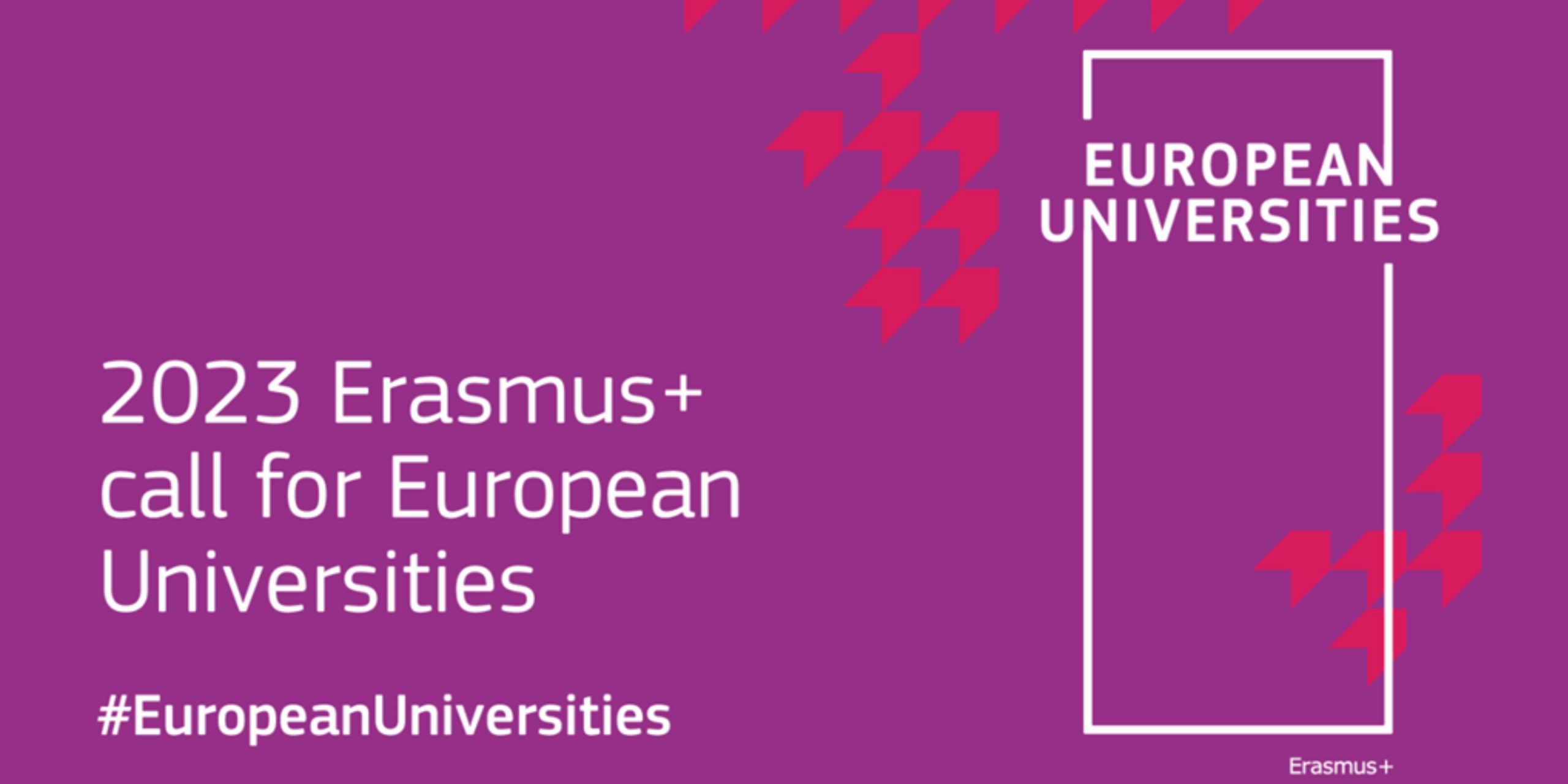On the 30 September, the European Commission launched the fourth European Universities call under the Erasmus+ programme.
This new Erasmus+ call for proposals will continue the rollout of the European Universities initiative with a record total budget of €384 million.
The European Universities’ work encompasses all higher education institutions’ missions of education, research, innovation and service to society. These alliances have diverse models of systemic, structural and sustainable transnational cooperation which reinforce the quality, performance, attractiveness and international competitiveness of higher education across Europe, for the benefit of their students and staff, while promoting our democratic values.
The Erasmus+ 2023 European Universities call is now open to the participation of higher education institutions from all Western Balkans countries as full partners in the alliances.
Also, a Seal of Excellence will be awarded to proposals which have been assessed and scored as high quality (above 80 points) but that cannot be funded under Erasmus+ due to lack of available budget. The seal is a quality label that recognises the quality of the concerned proposals and helps them seek alternative funding at national level.
Structure of the call
The call is structured around two topics:
Topic 1: intensification of prior deep institutional transnational cooperation
This call topic will provide support for already existing deep institutional transnational cooperation alliances including, but not limited to, the European Universities alliances selected under the 2020 Erasmus+ call for proposals.
The aim is to build upon the institutional cooperation achieved so far and to further deepen, intensify and expand the effectiveness of this existing cooperation in order to progress towards the long-term vision of the ‘European Universities’. New higher education institutions have the opportunity to join these existing alliances as full partners.
Topic 2: development of new deep institutional transnational cooperation
This call topic will provide support for applicants wishing to establish new deep institutional transnational cooperation in a new ‘European Universities’ alliance.
How to apply
Find the call for proposals for the 2023 Erasmus+ European Universities on the EU’s funding and tenders portal.
Deadline
The deadline for applications submission is 31 January 2023.
The call is an open competitive call based on qualitative criteria.
Save the date for the upcoming information session!
The Commission is holding an open information session for potential applicants to ask questions on the 2023 call.
This will take place on the 15 November 2022 through this webstreaming.
The agenda will be available on this page closer to the date.
Background
European Universities can better solve societal challenges by pushing further the boundaries of higher education transnational cooperation. They strengthen quality and relevance for future-proof skills, equip young people, lifelong learners and researchers with the right competences and skills for the green and digital transitions and for becoming the innovators and entrepreneurs of tomorrow, while having a positive impact on their innovation ecosystems and communities.
The 2023 call aims to deliver on the ambitious objectives set for the initiative in the Council Conclusions on the European Universities initiative [pdf] from 17 May 2021, as well as on the objectives in the European strategy for universities and the new European Innovation Agenda (press release).
The 2023 Erasmus+ call builds on the success of the three calls launched in 2019, 2020 and 2022. These currently support 44 alliances gathering 340 higher education institutions from all over Europe.
This new call is aiming to bring the initiative closer to the objective set in the European strategy for universities, to support 60 alliances by mid-2024, gathering over 500 higher education institutions across Europe.
Read more about the European Universities Initiative
Source: European Commission I Erasmus+ (https://bit.ly/3UXcI3j)
